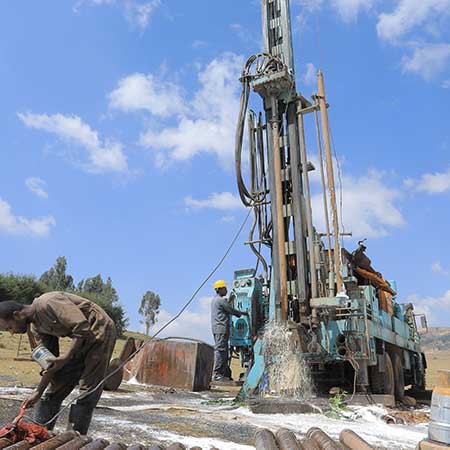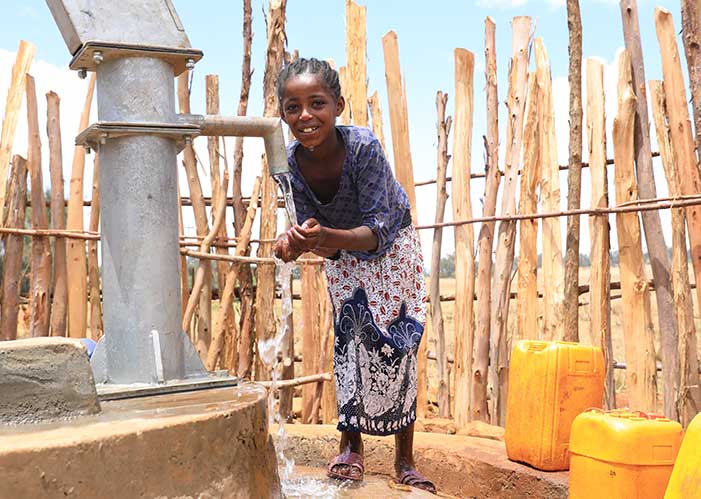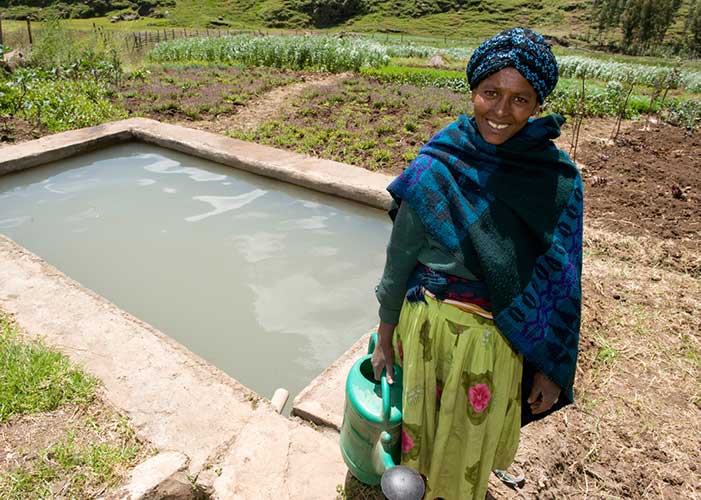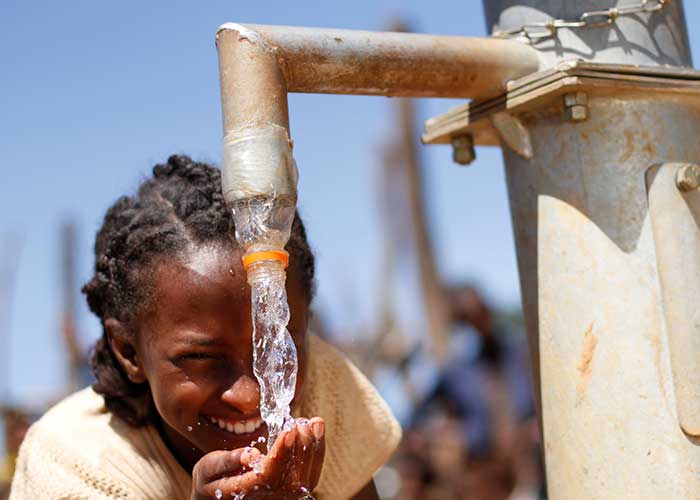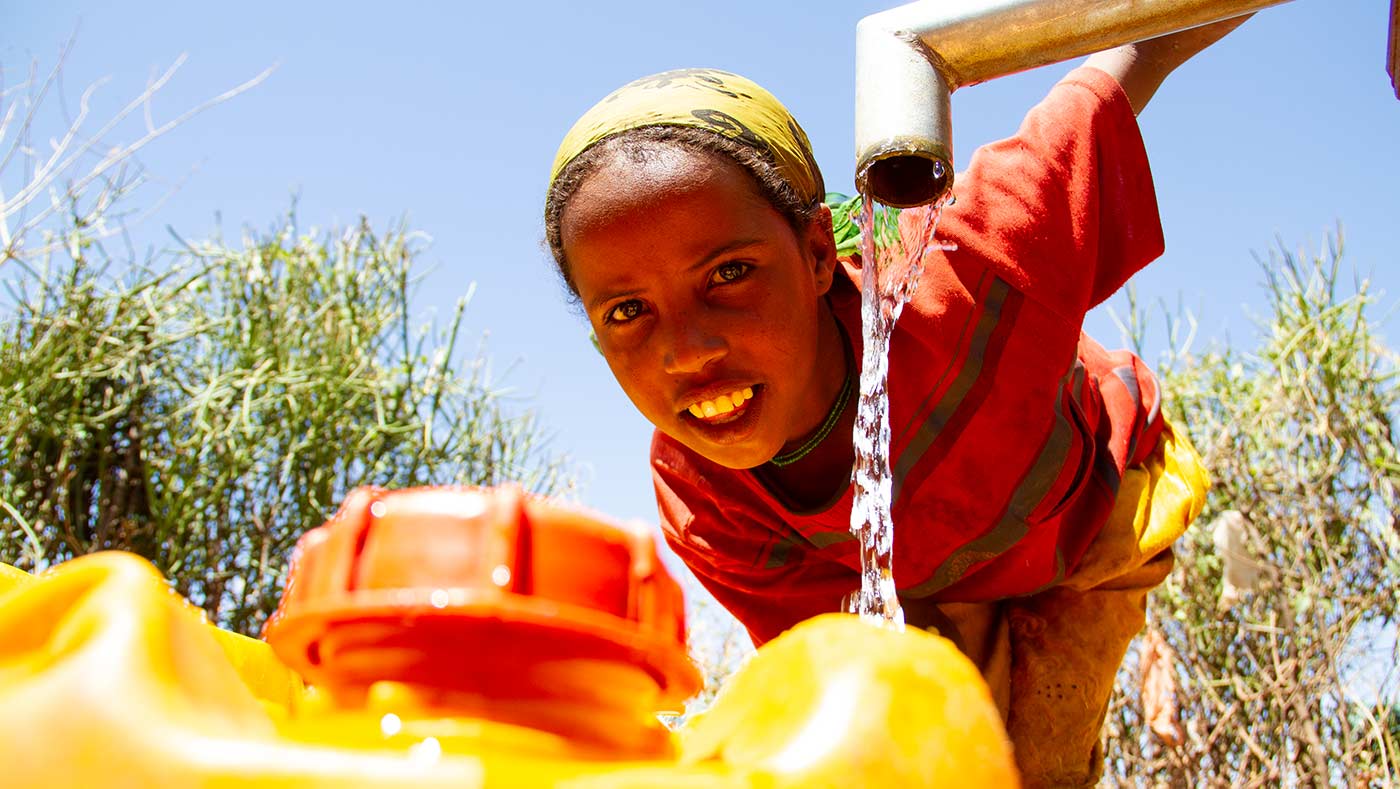
Water
"Clean water is progress. It means good health, enough to eat and makes education possible – especially for women and children."
Only one out of every two persons living in rural Ethiopia has access to clean drinking water. This can place the lives of older people, babies and young children at particular risk. Together with the local population, we construct wells and water reservoirs and train local water management committees.
Help us to provide families in Ethiopia with clean, healthy drinking water!
Help us to provide families in Ethiopia with clean, healthy drinking water!
Clean water changes lives! And the personal stories of those living in our project areas will show you the extent to which this is the case.
Access to clean drinking water has significant effects on various aspects of life: health, nutrition and education.
A supply of clean drinking water close to villages improves health and hygienic conditions, providing for a decrease in diseases such as worm infestation and diarrhoea, afflictions that can prove fatal in the elderly and in babies.
Better hygiene and clean water also aid in combating the bacterial eye infection trachoma that if untreated can lead to blindness. Farmers in Ethiopia depend on the regular return of the rainy seasons. If the period over which rain falls is too short, harvest failure can be the result. Irrigation systems give them the opportunity to cultivate fruit and vegetables irrespective of the rainy seasons.
A supply of clean drinking water close to villages improves health and hygienic conditions, providing for a decrease in diseases such as worm infestation and diarrhoea, afflictions that can prove fatal in the elderly and in babies.
Better hygiene and clean water also aid in combating the bacterial eye infection trachoma that if untreated can lead to blindness. Farmers in Ethiopia depend on the regular return of the rainy seasons. If the period over which rain falls is too short, harvest failure can be the result. Irrigation systems give them the opportunity to cultivate fruit and vegetables irrespective of the rainy seasons.
Only one in every two persons has access to clean water. This is an unacceptable situation!
We ensure that clean water is available over the long term by building wells and constructing reservoirs. The population is involved in the related projects from the beginning. The decision where to build a well or construct a spring reservoir ultimately depends not only on the needs in the region and water resources, but also on whether the local people are willing to take responsibility for the project.Only one in every two persons has access to clean water. This is an unacceptable situation!
We ensure that clean water is available over the long term by building wells and constructing reservoirs. The population is involved in the related projects from the beginning. The decision where to build a well or construct a spring reservoir ultimately depends not only on the needs in the region and water resources, but also on whether the local people are willing to take responsibility for the project.What we do:
Our activities in our focal area of water, sanitation, and hygiene are as follows:
Construction of hand-pumped wells and spring reservoirs
Construction of irrigation system for small towns
Formation of water committees in villages
Construction of washing points and drinking troughs for animals
Introduction of household latrines
Construction of agricultural irrigation systems
Courses in water, sanitation and hygiene (WaSH training)
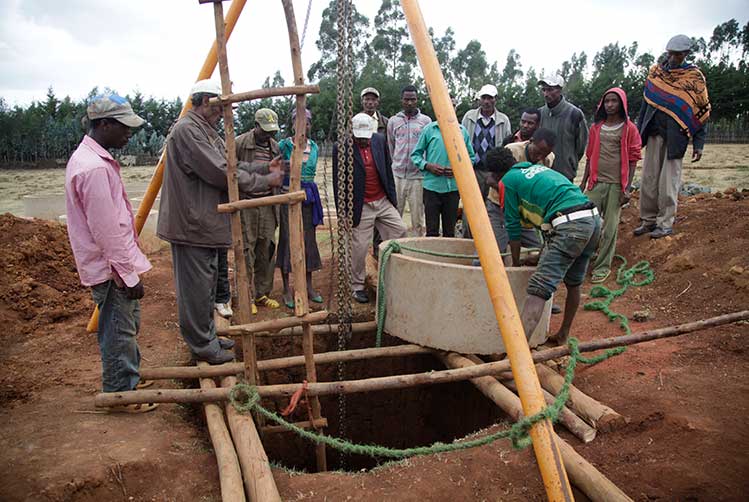

Wells are community projects
Once a well has been constructed, the local water committee made up of members of the village community becomes responsible for its management and maintenance. Each committee consists of seven persons as a rule – both men and women – and is trained by Menschen für Menschen in techniques of maintenance to ensure the longest possible useful life of the hand-dug wells and spring developments.
The water committee itself appoints a well attendant. The latter is responsible for superintending the well opening times and makes sure that the site is kept clean and in good order. In return, the attendant receives payment from the fees contributed by the users. The amount of the usage fee is specified by the community itself and the money is also used to pay for any repairs or spare parts needed in the future.
The water committee itself appoints a well attendant. The latter is responsible for superintending the well opening times and makes sure that the site is kept clean and in good order. In return, the attendant receives payment from the fees contributed by the users. The amount of the usage fee is specified by the community itself and the money is also used to pay for any repairs or spare parts needed in the future.
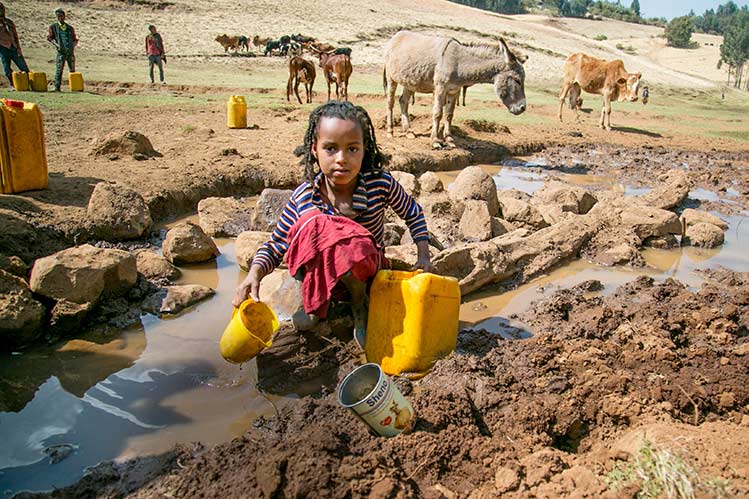

Clean water improves the status of women
Collecting water has always been the task of women in Ethiopia – they may need to travel as far as 6 km to the next water point where they collect water from the dirty rivulets for their families. If a well is located in the immediate vicinity of a village, the women and girls save time; time that they can use to go to school, to attend educational courses or to establish their own business with the help of a microcredit and thus earn their own income.
